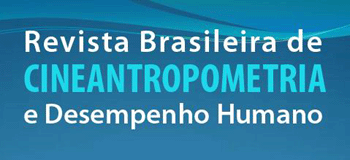Strength training (ST) increases muscle strength (MS) in the elderly, but results may vary considerably depending on the method of evaluation. Objective: This study compared two MS methods to evaluate an ST program for elderly women. METHODS: Sixty-one volunteers (mean age 66.8 ± 5.8 years) underwent ST for 24 weeks to work out the major muscle groups. Knee extensor MS was assessed using one-repetition maximum strength (1RM) and isokinetic dynamometry (60º.s-1) before and after ST. A 2x2 ANOVA was used to compare the methods and MS gains after the ST program. MS increased significantly after ST according to both methods. Increases in MS were in average 16.7% and 54.7% using dynamometry and 1RM. The improvement according to 1RM was significantly (P<0.001) greater than that measured using the isokinetic method. Although values lied within agreement limits, differences between methods (1RM vs. isokinetic) decreased as MS increased at the end of the ST program. ST increases MS in older women, but improvement varies considerably according to the method used to evaluate it. Measurements using 1RM seem to overestimate strength gains and may, thus, affect the potential results of resistance training.
Elderly; Muscle strength; Strength training





